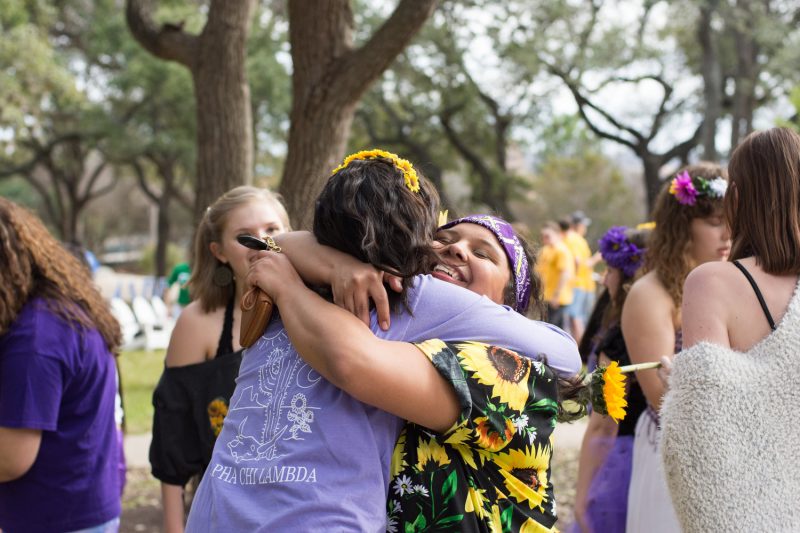Breaking down barriers and eliminating gender exclusivity sounds, on paper, like the perfect way to push society towards a more welcoming and diverse environment. That is why many are beginning to advocate for entirely coeducational Greek life. Since I have never personally been a part of Greek life, I started by researching a recent move by another gender-exclusive group with which I was more familiar: The Boy Scouts of America.
When I heard the news that the Boy Scouts were planning to allow girls to join their program as full members, I became excited and supportive of the idea. Boy Scouts had offered me many unique opportunities for leadership and the value of community service that I might otherwise not have experienced, and it made sense to me that girls should have the same opportunities. However, after doing a bit of research, I realized that my excitement for the potential opportunities of young girls was not shared by a very important group: The Girl Scouts of the USA.
“The need for female leadership has never been clearer or more urgent than it is today — and only Girl Scouts has the expertise to give girls and young women the tools they need for success,” read an official statement by the organization.
This conflict between the two youth organizations is not simply a lone case study, but rather indicative of a growing conversation surrounding the relevance of gender-exclusive groups: Do these types of organizations simply exclude others from important opportunities, or do they create unique spaces for their individual focuses? These opposing sides seem to reflect much of the same discourse surrounding the gender-exclusivity of fraternities and sororities.
In 2014, Wesleyan University made a major push to integrate women into male-only fraternities, decreeing that they must allow women or lose their campus housing. This seemingly radical move was a response to the increasing problem of sexual assault on campus. Many proponents of the idea theorized that it would bring more sympathy and awareness to the issue of sexual assault and in the long run create a more respectful environment.
Not all onlookers were confident in the viability of the plan, however.
“Just throwing [women] in there is a mistake without doing more,” said Christopher Kilmartin, professor of psychology at University of Mary Washington.
Kilmartin argued that the integration would have to be accompanied by “the right mix of policies that improve sexual assault education and social power structure.”
Indeed, it seems as though looking to coed fraternities as a cure-all for sexual assault issues is unrealistic and unproven. Coed fraternities are largely untested, so it’s hard to say whether they radically shifted campus culture in a positive direction. And without the kind of holistic education that Kilmartin mentioned, it seems extremely unlikely that the issue of sexual assault and toxic fraternity culture would disappear simply by introducing women into the all-male organizations.
Sorority members at Trinity College in Connecticut, when faced with a new policy requiring both fraternities and sororities to go fully coed in 2012, worried about the disappearance of safe spaces that the sorority provided for women. Kiley Hagerty, a member of the Ivy Society sorority, brought up the importance of having a support group for women about personal issues such as pregnancy, breast cancer or body confidence. The sororities feared that the elimination of these spaces would do more harm than good and questioned if women actually benefited from the policy at all.
Gender-exclusive fraternities provide a unique group centered around a specific identity. In the same way that cultural groups on campus allow people from a similar ethnic or cultural background to bond over similar interests, all-male or all-female organizations can provide a space for people of similar genders (which should include all those who identify as that gender) to bond over their shared experiences and unique outlooks.
Coed spaces exist on campus: Here at Trinity, we have coed dorms, classes and service fraternities like APO that allow all genders to interact with each other in a fruitful way. But forcing all Greek organizations to integrate genders risks eliminating valuable opportunities for shared identities, and may end up hurting those who need the spaces the most.





Denise Boehm • Aug 15, 2018 at 12:16 pm
Hi Trinitonian,
Humbly, I point out that you have published a draft and not a final version of the article. Your comments to the writer are inline, along with some code. Please remove my comment, as I know this error is not indicative of the quality of the Trinitonian. Thanks!